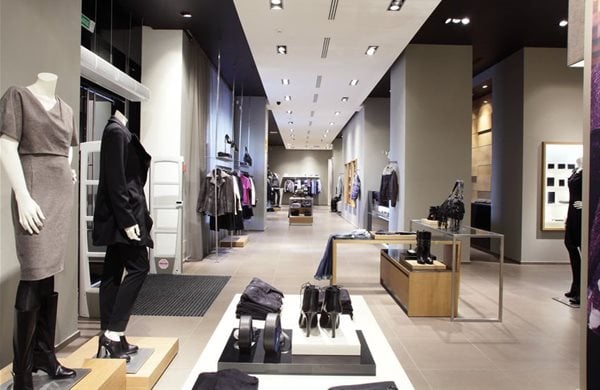Being successful in retail used to be about offering the best possible customer experience, in the best possible location, with price often playing a tertiary role. For brands like Edgars (and other brands in the Edcon stable) and Makro, this worked well in the past. But their failure to have visible digital shopfronts over their brick-and-mortar offerings has put their future business in jeopardy.
These businesses and many other big retailers have a history of positioning themselves brilliantly in prime retail locations in premium malls and need to follow the same strategy for their digital shopfronts. They need to own their digital real estate out-and-out.
With more shoppers moving online – either to browse or buy – it’s more important than ever to be well-positioned on Google search results. Organic search is still the means through which people access online goods directly.
With 37% of South Africans saying that they’re shopping more online than ever before, it’s simple: if you aren't visible you won't get the traffic. This is a very rudimentary observation, but Edgars – or any retailer – should be as pedantic about their digital real estate as they have been with their conventional sites.
There aren't that many dominant online retailers in South Africa and while some big names are very visible, the opportunity for a company like Edgars is massive, particularly when it's currently under threat of closure.
It all starts with the basics, though. Owning your position on the search engine results pages (SERPs) and other channels for the categories you operate in does not differ from competing for the best locations in upcoming retail developments.
Makro's woes are normal. The scale of its undertaking is rarely fully understood. The stress points on its online sales processes are only revealed at times of high demand.
I was exposed to this when at Groupon and we went from a couple of deals a day or week, to hundreds of sales that revealed massive operational challenges. You can't pre-empt and avoid these as easily as one might think, but Makro is a company that knows how to do business on a large scale, and it adapts quickly.
If anything, the company is well-positioned to learn quickly from its current growing pains – faster than Takealot or Superbalist.
Having said that, it's a brilliant time for it to leverage channels that are effective at dealing with such growing pains. Social media, and specifically Facebook, is so underutilised for a brilliant brand experience from a complaint perspective.
Connecting with customers through digital channels
I have personally built some of my strongest brand connections with companies that dealt with my needs in a meaningful way through these channels. It's a big reason businesses need to appreciate fully the digital landscape and which channels are best used for what.
Facebook will not be your bottom-line revenue driver, but it will give your disgruntled customers a great brand experience and show them you care.
Google will not be your solution for engaging with consumers on that scale, but it will definitely give you a much better return on online sales than any other channel. That requires its own strategy and execution.
Having recently rebuilt a room to serve as an office, I found a poor experience from heavily invested big players like Builders Warehouse. I had to engage multiple brands across many platforms with far too many searches only to find out what I needed and where to purchase.
Running a themed search for something like a home office or bathroom should render a virtual in-store experience. A customer should be presented with various options, carefully compiled from available stock. These should be displayed, with an easy, one-click purchasing mechanism.
It seems logical to create a pop-up window that suggests the necessary plumbing attachments when an online shopper purchases a toilet set, for example – because so few people will require one without the other.
Builders Warehouse loses a massive opportunity for growing sales by not doing this. It also creates a frustrating customer experience as clients need to make repeat purchases rather than getting all requirements in one basket.
This Pinterest-like experience seems like an obvious next step to boost user experience and those all-important SERPs. Too many big retail brands are investing in their tech stack and back-end but they’re neglecting customers' online experiences. Big retailers need to guide customers through the virtual store process to encourage more purchases.
It’s time to think in a more consumer-centric way to replicate the in-store experience more effectively online. If brick and mortar retailers are going to remain relevant, never mind competitive, as online shopping’s popularity soars, they simply don’t have a choice.














































